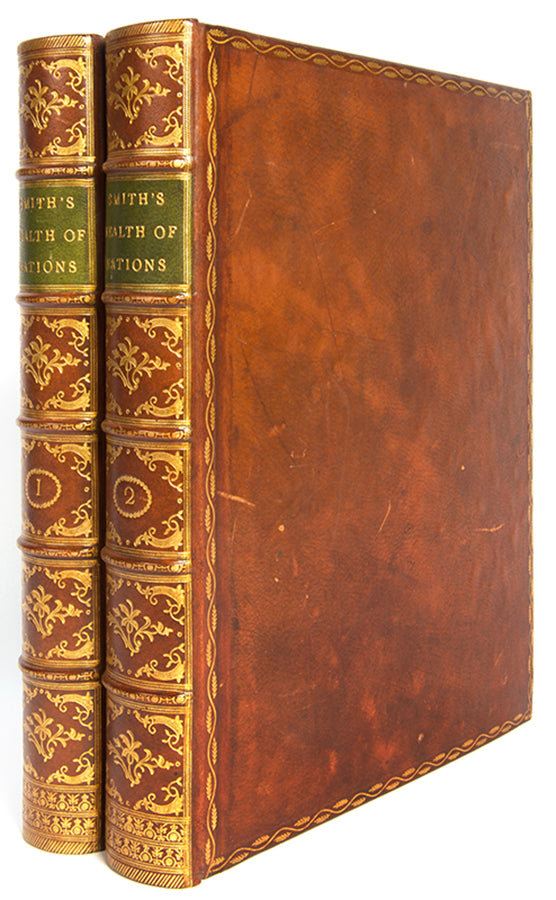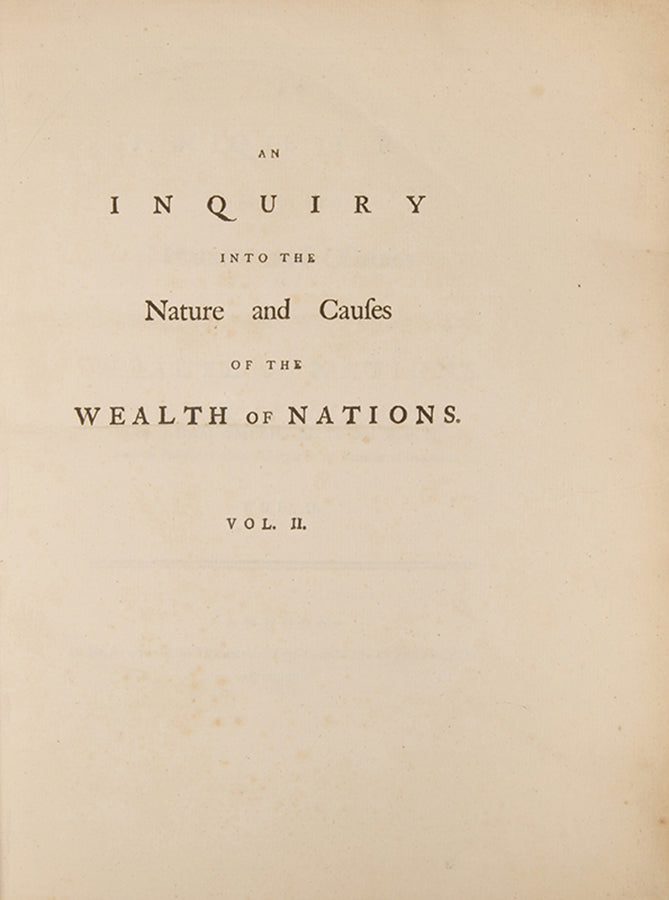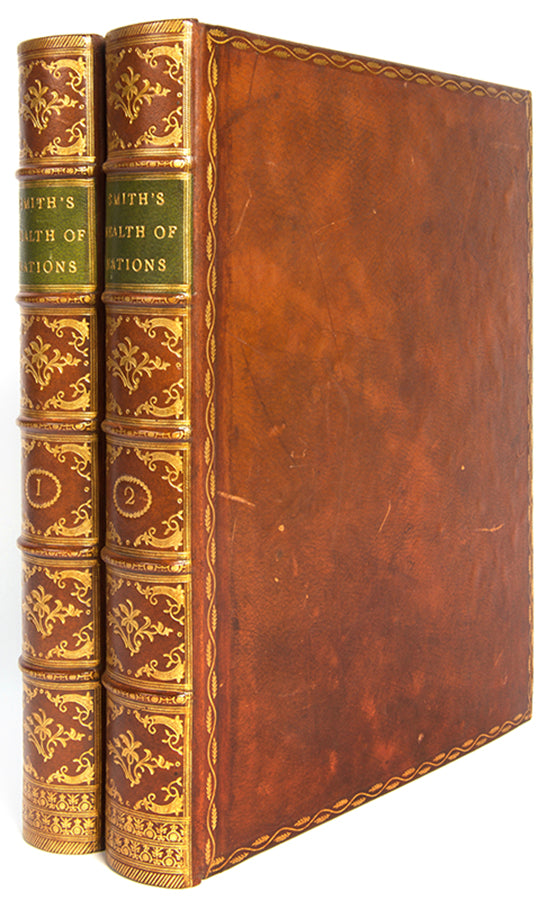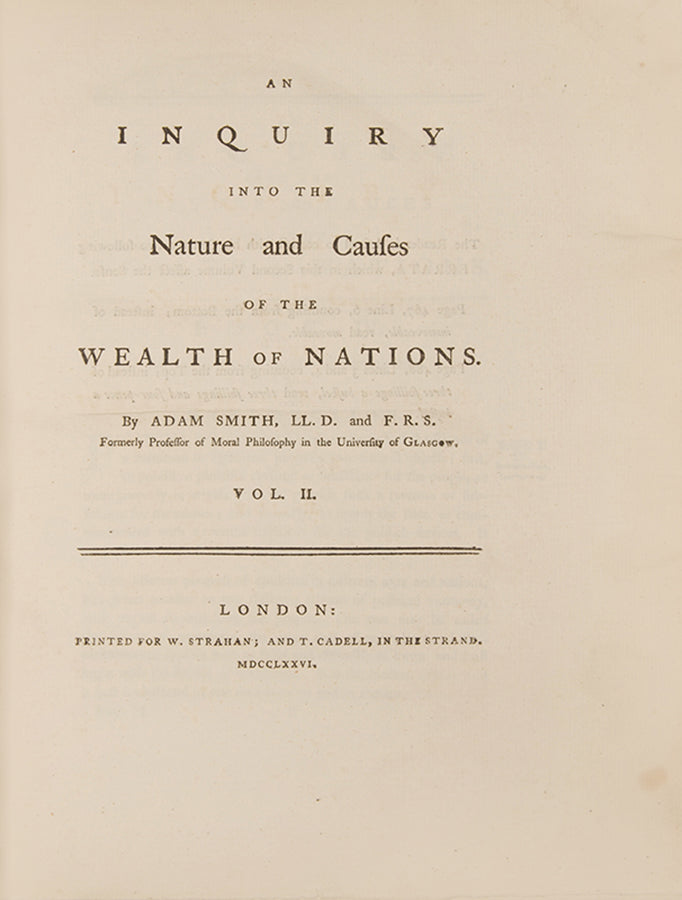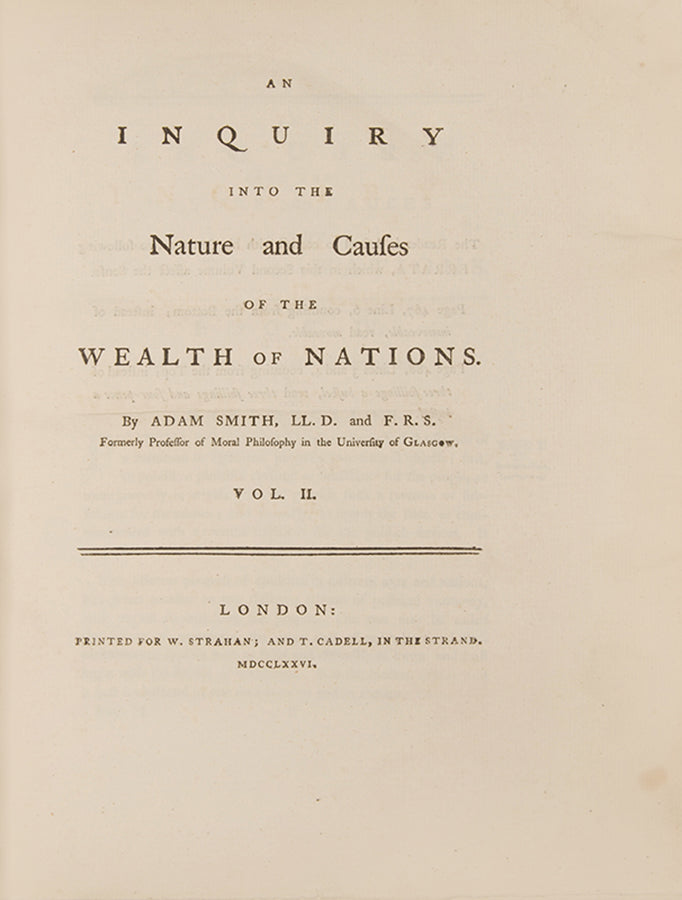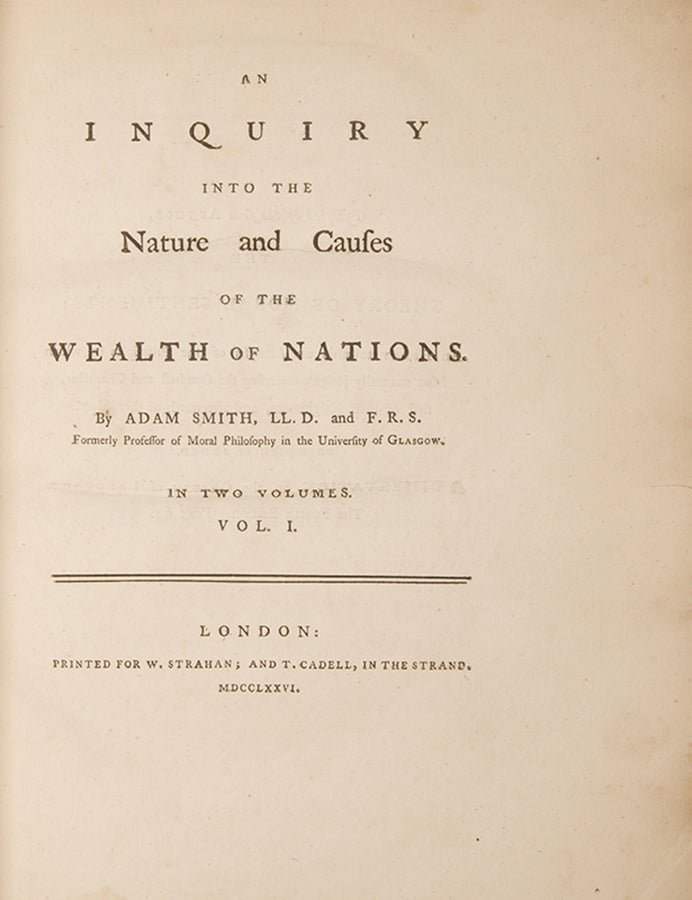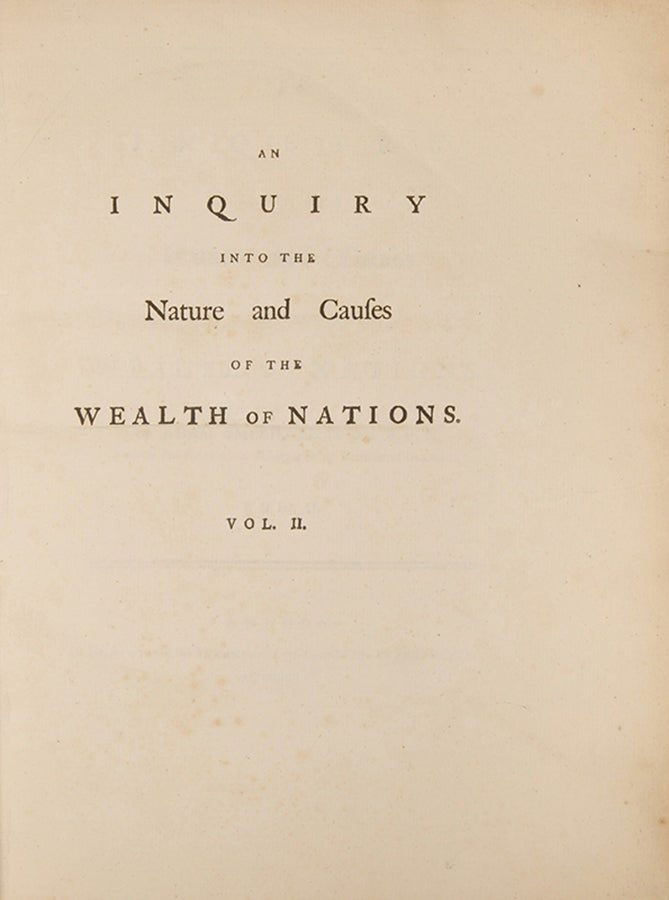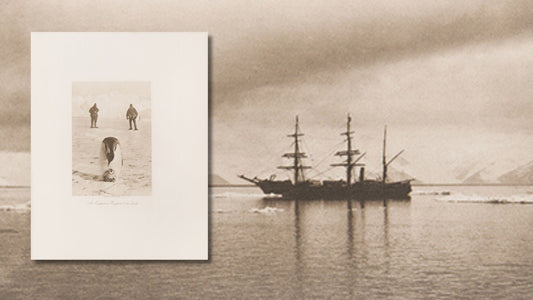SMITH, Adam.
An Inquiry into the Nature and Causes of the Wealth of Nations.
An Inquiry into the Nature and Causes of the Wealth of Nations.
By Adam Smith, LL.D. and F.R.S. Formerly Professor of Moral Philosophy in the University of Glasgow. In Two Volumes.
Stock Code 116777
London, Printed for W. Strahan; and T. Cadell, in the Strand, 1776
Smith (d.1790) spent ten years writing and perfecting the text of the Wealth of Nations, the popularity of which surpassed even its publisher's expectations upon release: the estimated supply of between 500 and 750 first edition copies was exhausted within the first six months of printing, and four further editions were issued within Smith's lifetime.
As the title explains, the work is fundamentally an investigation into what makes certain nations prosperous. Smith's originality lies in locating the roots of this comparative wealth in the specialisation of labour which had occurred in developed economies, for the 'annual labour of every nation is the fund which originally supplies it with all the necessaries and conveniences of life which it annually consumes, and which consist always, either in the immediate produce of that labour, or in what is purchased with that produce from other nations' (Introduction).
'The history of economic theory up to the end of the nineteenth century consists of two parts: the mercantilist phase which was based not so much on a doctrine as on a system of practice which grew out of social conditions; and the second phase which saw the development of the theory that the individual had the right to be unimpeded in the exercise of economic activity. While it cannot be said that Smith invented the latter theory... his work is the first major expression of it. He begins with the thought that labour is the source from which a nation derives what is necessary to it. The improvement of the division of labour is the measure of productivity and in it lies the human propensity to barter and exchange... Labour represents the three essential elements—wages, profit and rent—and these three also constitute income. From the working of the economy, Smith passes to its matter—'stock'—which compasses all that man owns either for his own consumption or for the return which it brings him. The Wealth of Nations ends with a history of economic development, a definitive onslaught on the mercantile system, and some prophetic speculations on the limits of economic control' (PMM).
First edition; 2 vols; 4to (30.5 x 26 cm); half-title to vol. II and p.288 misnumbered 289, MS correction in pen to foliation of vol. I 2Z3, occasional spotting, particularly affecting vol. I pp371-376, lower corner of vol. I 3B torn with slight loss not affecting text; modern boards using contemporary russia, covers ruled in gilt in oscillating wheat-head design, gilt spines in 6 compartments, contrasting green-morocco lettering-pieces, fore and bottom-edges uncut, covers slightly marked, a very good copy housed in a custom-made slipcase; [12], 510; [4], 587, [1]pp
PMM 221; ESTC T96668; Kress 7261; Rothschild 1897; Tribe 9.
Couldn't load pickup availability
Provenance
Provenance
Delivery
Delivery
We offer secure and express delivery on all local and international orders of rare books, maps and prints placed through this website.
About us
About us
Shapero Rare Books is an internationally renowned dealer in antiquarian & rare books and works on paper.
Our Bookshop and Gallery can be found in the heart of Mayfair at 94 New Bond Street, where most of our stock is available to view and on public display.
We exhibit at major international art fairs, including TEFAF (Maastricht and New York), Frieze Masters, Art Miami and Masterpiece London, as well as antiquarian & rare book fairs including New York, Paris, London, Los Angeles, San Francisco and Hong Kong.
Ask us a question
Ask us a question
